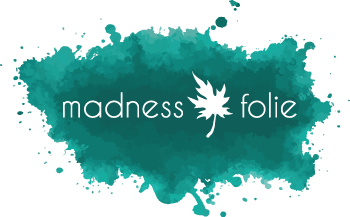Haarlem’s Museum of the Mind
BY JULIETTE BOUILLON AND MEGAN J. DAVIES

Visiting the Museum of the Mind in Haarlem, the Netherlands, during the fall of 2022, we were intrigued by how this public repository of psychiatry’s past seemed to speak with such purpose to mental health today, drawing the visitor in as an active participant. We mused on how Madness Canada and this unique museum across the Atlantic share an interest in using storytelling, art, and past-present-future paradigms to challenge current ideas and practices in mental health. As we talked excitedly about the museum’s current exhibit, a set of queries emerged:
- FOUNDATIONS – What were the origins of the museum, its collection, and its first programming and permanent exhibit?
- RE-VISIONING – When the museum needed a new exhibit, how did it use art alongside history to promote neurodiversity?
- HISTORICIZING – How has the museum mobilized psychiatric history and its artefacts in its 2020 permanent exhibit?
- ENGAGEMENT – Who are the Museum of the Mind’s publics and how are they represented in the museum?
We recorded a handful of lengthy, wide-ranging interviews with individuals connected to the Museum, then created four short video collages on key storylines. Next, drawing from our interviews and reviewing secondary literature and museum reports, texts, and artefacts, we crafted written inquiries to add depth and discussion. Mental health is complex, and solutions are rarely straightforward. Sometimes, working out the ideas in our inquires, we felt like we were walking on an endless beach, picking up one promising stone only to cast our eyes on another, and then a third.
Placed in the Mad Cities portal, our exhibit juxtaposes the historical and current roles of a landmark in the city of Haarlem in the Netherlands. From the late Medieval Ages, this civic institution sheltered marginalized people in need. Yet, at the same time, it removed “undesirable” individuals from the community, functioning as a segregated, stigmatized space. Today the story of this site is very different. No longer beyond city limits, this medieval madhouse now houses a museum intent on breaking down the societal divide created by a mental health diagnosis.
Follow the links on the right to four thematic videos and inquiries.
Thank you:
Created with funding from AMS Healthcare, this exhibit supports the organization’s quest for compassionate care. We thank Museum of the Mind director Hans Looijen for saying yes to our project, Joost Vijselaar for introducing us to the museum and for his ongoing support, our interviewees for taking the time to speak with us, the Robarts Centre for Canadian Studies (York University, Canada) for administrative assistance, Marlinde Venema for her videographic talents, Kohen Hammond for his fine soundtrack, and the museum staff and volunteers for their essential help and kindness.
The Creators:
Juliette Bouillon is a philosophy and physics graduate passionate about the history and philosophy of mental health and engaged in exploring the intersection of science, ethics, and the human mind at Utrecht University, the Netherlands.
Megan J. Davies is a British Columbian health historian and professor emerita at York University, Canada, with research interests in aging, madness, and everyday health. She recently curated the COVID in the House of Old exhibit.
